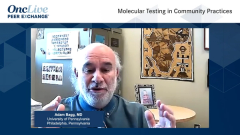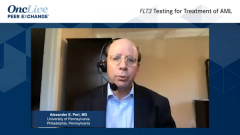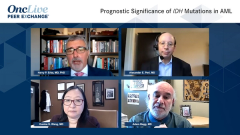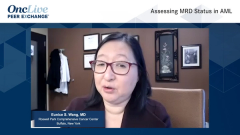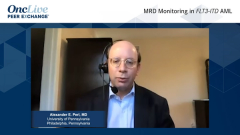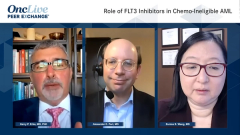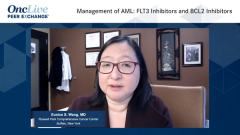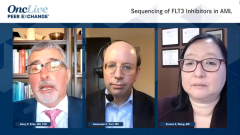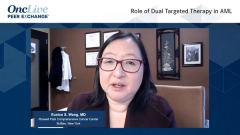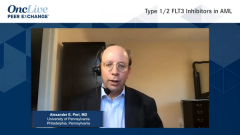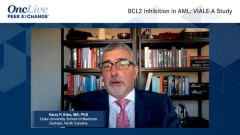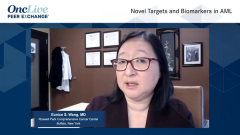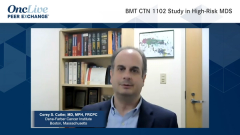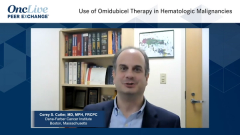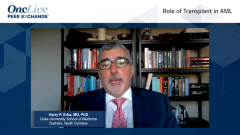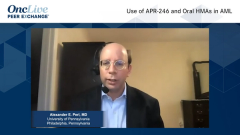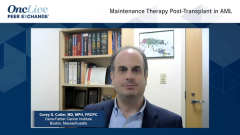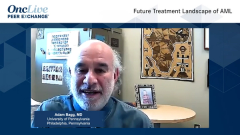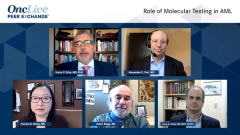
Type 1/2 FLT3 Inhibitors in AML
Episodes in this series

Harry P. Erba, MD, PhD: Before we leave the topic of FLT3 inhibitors, I want to talk about the difference between type 1 and type 2 inhibitors. A type 1 inhibitor is a second-generation drug like gilteritinib that inhibits both the TKD and the ITD mutations, and a type 2 inhibitor such as quizartinib inhibits only the ITD, not the TKD. There has been a lot of discussion about the mechanisms of resistance with those type 2 inhibitors, where you might see TKD mutations coming out, but there are also mutations that occur at the time of progression after gilteritinib with RAS mutations and gatekeeper mutations.
Sasha, you presented on a comparison of these 2, and I want your summary of whether you think there is room for both a type 1 and type 2 second-generation FLT3 inhibitor. Sasha?
Alexander E. Perl, MD, MS: Just to clarify, I will say something. The presentation we did was a poster that largely looked at the question of how active gilteritinib was in the population studied in the phase 3 quizartinib study. It did not compare gilteritinib with quizartinib, though realistically, if you look at the data sets, you can draw your own conclusions. You have to be careful with cross-study comparisons when you are looking at 2 different data sets. I would not suggest that this is what we were trying to do.
We know that the QuANTUM-R study and the ADMIRAL study, which are phase 3 evaluations of a second-generation FLT3 inhibitor vs salvage chemotherapy, were similar in design. The 2 drugs are similar in terms of how they work, their activity, response rates, and even the survival. At the end of the day, they are more similar than they are different. There are improvements in response, and there are improvements in survival with each drug compared with chemotherapy. The reason we did this analysis was to ask if the differences in terms of the survival benefit seen in the ADMIRAL and QuANTUM-R trials were because of the populations of the studies or in any way the differences in the drugs. I do not think that, at the end of the day, we can say that because it is not a direct comparison of the drugs. Gilteritinib is active in patients who would have met eligibility for the QuANTUM-R trial: who were higher risk than those on the ADMIRAL trial because they had to relapse within 6 months of first remission, and they could not have a TKD mutation as their only FLT3 mutation.
It was only patients with positive FLT3 ITD mutations, and the response rates were largely overlapping in terms of the 2 drugs. The survival was 10 months in the gilteritinib arm of the ADMIRAL trial; that would have matched that of the QuANTUM-R trial, and the differences in adverse effects were relatively small: more QT prolongation with quizartinib, more LFT [liver function test] abnormalities with gilteritinib. There are some differences in terms of duration of response and time to progression. The full count recovery is more common with gilteritinib, but there is room for both if we could have access to both.
In Japan, both drugs are approved, and I am a bit envious of that scenario. As you know, the ODAC [Oncologic Drugs Advisory Committee] decided not to recommend approval for quizartinib, so its approval process in the relapsed/refractory setting was halted there. The drug has undergone a frontline evaluation, 7+3 chemotherapy plus quizartinib vs placebo, which has completed enrollment. That is the QuANTUM-First study, and when that reads out, we will know whether that study meets its primary end point, which has been modified to be overall survival. It may take a bit longer to get that readout.
Harry P. Erba, MD, PhD: Thank you.
Transcript Edited for Clarity


